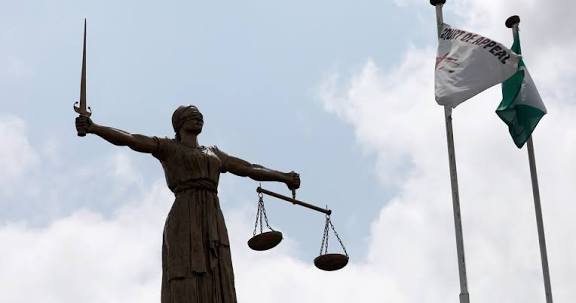By Tina Chinyere – Portharcourt
The Federal High Court in Abuja has dismissed a suit challenging the proclamation of a state of emergency in Rivers State, ruling that the plaintiff lacked the legal standing to file the case and that only the Supreme Court has jurisdiction to entertain such matters.
The suit, with number FHC/PH/CS/53/2025, was filed by Samuel Amatonjie, a Port Harcourt-based legal practitioner and human rights activist, against six defendants — the President of the Federal Republic of Nigeria, the Attorney-General of the Federation, the National Assembly, the President of the Senate, the Speaker of the House of Representatives, and the Sole Administrator of Rivers State, Vice Admiral Ibok-Ete Ekwe Ibas (rtd.).
Amatonjie’s suit sought several declaratory reliefs, including a ruling that the state of emergency declared by President Bola Ahmed Tinubu on March 18, 2025, and the subsequent suspension of Governor Siminalayi Fubara, Deputy Governor Ngozi Odu, and elected members of the Rivers State House of Assembly, were unconstitutional and void.
He also asked the court to declare that: The approval of the emergency declaration by the National Assembly through a voice vote did not meet the two-thirds majority requirement stipulated in Section 305(6)(b) of the 1999 Constitution (as amended).
The president has no constitutional authority to suspend democratically elected officials during a state of emergency. The oath of office administered to the Sole Administrator, Vice Admiral Ibas, is unconstitutional, as there is no provision for such an oath under the Seventh Schedule of the Constitution.
Originally filed at the Federal High Court, Port Harcourt, the case was transferred to Abuja and reassigned to Justice J. K. Omotosho of Court 7.
Delivering judgment on Tuesday, October 22, 2025, Justice Omotosho held that Amatonjie lacked locus standi (legal standing) to institute the action and ruled that only the Supreme Court has jurisdiction to determine issues relating to a state of emergency under the Constitution.
Reacting to the judgment, Amatonjie expressed disappointment but vowed to appeal the decision.
“I remain resolute and will take this matter to the Court of Appeal,” he said, insisting that the issues raised in the suit concern the rule of law, constitutional democracy, and the sanctity of elected offices in Nigeria.

















